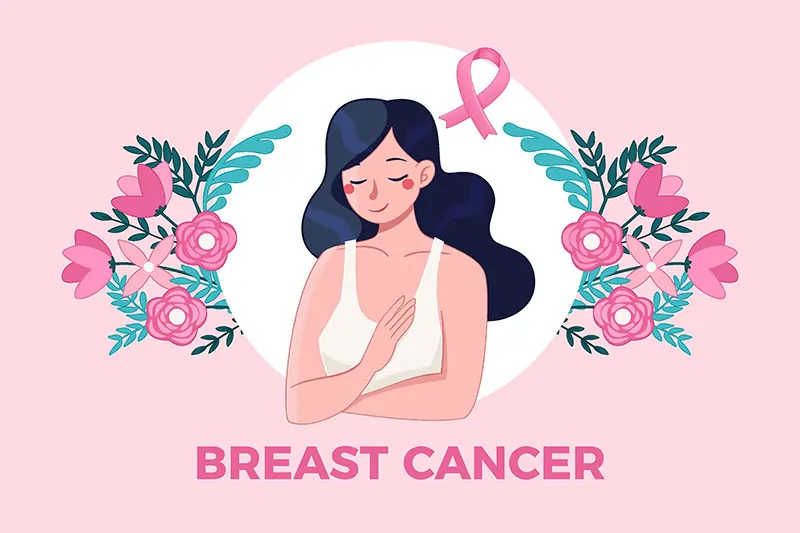Factors Impacting Breast Cancer Treatment Costs in Germany

The landscape of breast cancer treatment costs in Germany is shaped by a multitude of intricate factors that can influence the financial aspects of care. Understanding these variables is essential for informed decision-making and financial planning.
- Stage of diagnosis. The stage at which breast cancer is diagnosed plays a pivotal role in treatment costs. Early-stage diagnoses often involve less aggressive interventions, which can translate to lower expenses. In contrast, advanced-stage diagnoses may require more extensive treatments, including surgeries, chemotherapy, and targeted therapies, which can contribute to higher costs.
- Treatment modalities. Surgical interventions, chemotherapy, radiation therapy, targeted therapies, hormone therapy, and immunotherapy all come with varying price tags. Tailored treatment plans, incorporating a combination of these methods, contribute to the overall expense.
- Treatment duration and intensity. The duration and intensity of treatments can drive costs. Chemotherapy cycles, the number of radiation sessions, and the frequency of follow-up visits all contribute to the cumulative expense. Personalized treatment plans adapted to each patient’s needs can affect the financial burden.
- Type of hospital or medical facility. The choice of hospital or medical facility can impact costs due to variations in infrastructure, expertise, and resources. Specialized cancer centers may offer advanced technologies and experienced multidisciplinary teams, potentially leading to higher costs compared to general hospitals.
- Insurance coverage and policies. Insurance coverage, whether private or public, plays a significant role in determining the out-of-pocket expenses for patients. Different insurance policies may cover varying portions of treatment costs, impacting the financial burden borne by patients.
- Geographic location. The geographic location of the medical facility also influences costs. Major cities or regions with a higher cost of living may reflect higher treatment expenses. Patients often consider options in different locations to find a balance between quality of care and affordability.
- Additional services and support. Patients’ individual needs, such as psychological counseling, palliative care, or complementary therapies, can contribute to overall expenses. These supportive services enhance the holistic approach to breast cancer treatment but may add to the financial aspect.
- Clinical trials and innovations. Participation in clinical trials or access to cutting-edge treatments may impact costs. While clinical trials can offer novel therapies, there might be associated expenses or variations in coverage.
- Patient preferences. Patients’ preferences for treatment options, healthcare professionals, and medical facilities can influence costs. Second opinions and treatment decisions based on individual preferences can lead to variations in expenses.
By collaborating closely with healthcare professionals, considering available resources, and exploring insurance options, patients can embark on their treatment journey with a comprehensive perspective, ensuring that the pursuit of recovery is balanced with practical financial planning.
Treatment Costs by Stage
The financial landscape evolves as patients transition from early-stage interventions to more complex treatments for advanced cases. Understanding these nuanced variations is paramount for patients and their families to prepare for the financial aspects of the journey.
Early-stage breast cancer treatment often involves surgical interventions, such as lumpectomy or mastectomy, followed by radiation therapy and, in some cases, hormone therapy.
As breast cancer advances to locally advanced stages, the treatment landscape becomes more intricate. Surgical options might include more extensive procedures, and chemotherapy may be incorporated into the treatment plan.
For patients with advanced or metastatic breast cancer, the focus often shifts to targeted therapies, immunotherapies, and palliative care to manage symptoms and improve quality of life.
In breast cancer treatment, state-of-the-art methods are successfully used. These include brachytherapy, transarterial chemoembolization (TACE), transarterial chemoperfusion (TACP), dendritic cell vaccine, cryosurgery, and more. Such therapies can be effective but also can cause additional costs.
Here are some approximate prices of breast cancer treatment options.
| Surgical interventions | Chemotherapy | Hormone therapy | |
| Stage 0 and I | €2,000 – €8,000 | €3,000 – €7,000 | €1,000 – €2,500 |
| Stage II | €6,000 – €10,000 | €4,000 – €10,000 | €1,200 – €3,000 |
| Stage III | €6,000 – €15,000 | €5,000 – €12,000 | €1,500 – €3,000 |
| Stage IV | €5,000 – €15,000+ | €5,000 – €12,000+ | €1,500 – €3,500 |
It’s crucial to recognize that these estimates are approximate and can differ based on individual factors, the medical team’s recommendations, the chosen medical facility, and the specific treatment plan.
The Impact of Insurance on Breast Cancer Treatment Costs in Germany
Germany’s healthcare system offers both public and private insurance options. Public health insurance typically covers a substantial portion of breast cancer treatment costs, including surgeries, chemotherapy, radiation therapy, and medications. However, specific coverage details can vary based on individual insurance policies and the type of treatments prescribed by the medical team.
Private health insurance often offers more extensive coverage and additional benefits, such as access to premium medical facilities, shorter waiting times, and greater flexibility in choosing medical professionals and treatment options. This can potentially ease the financial burden for patients seeking specialized care.
While insurance coverage plays a crucial role, patients should also be aware of potential out-of-pocket expenses. Co-payments, deductibles, and costs for certain medications or procedures not covered by insurance may contribute to the overall financial aspect of treatment.
Insurance coverage can impact treatment decisions. While both public and private insurances aim to provide quality care, patients with private insurance may have more options for personalized treatment plans, including access to innovative therapies or specialized medical teams.
Patients are encouraged to have open discussions with their healthcare providers and insurance representatives to comprehend the financial implications of their chosen treatment paths.
Related reading: The Benefits of Group Insurance for Employees
Understanding the Cost Breakdown for Breast Cancer Treatment in Germany
Understanding the intricate cost breakdown of breast cancer treatment in Germany is a valuable tool for patients and their families to gain clarity on the financial aspects of their healthcare.
- Diagnostic phase. The journey begins with diagnostic procedures, including mammograms, biopsies, imaging scans, and genetic testing. These tests lay the foundation for accurate diagnosis and treatment planning. The cost of diagnostics can range from approximately €500 to €2,000, depending on the complexity and number of tests performed.
- Surgical interventions. Surgical procedures such as lumpectomy, mastectomy, and lymph node removal are integral parts of breast cancer treatment. The cost varies based on the type of surgery, the complexity of the procedure, and the hospital chosen.
- Chemotherapy and medications. Chemotherapy is a critical treatment modality that comes with varying costs based on the type of drugs used, the duration of treatment, and whether they are administered in a hospital or outpatient setting.
- Radiation therapy. Radiation therapy is often employed post-surgery to target any remaining cancer cells. The cost depends on the number of sessions required.
- GammaKnife, CyberKnife, proton therapy. These treatments can be considered for specific cases of breast cancer. Treatment costs can vary based on factors such as the number of sessions required, the size and location of the tumor, and the chosen medical facility.
- Targeted and immunotherapies. In cases where targeted therapies or immunotherapies are prescribed, costs can vary widely based on the specific medications used, the duration of treatment, and the individual patient’s response.
- Hospitalization and Follow-Up. Hospitalization for surgeries, treatments, and recovery can contribute to costs. Follow-up visits, consultations, and additional procedures are also factors to consider.
- Supportive care and services. Psychological counseling, physiotherapy, and other supportive services enhance the holistic approach to breast cancer treatment. These services come with their own associated costs, which can contribute to the overall financial aspect.
Each patient’s treatment journey is unique, and personalized treatment plans are tailored to their medical needs. This individualization also extends to the financial aspect, where the cost breakdown is influenced by the chosen treatment options and their complexities.
Additional Resources for Breast Cancer Treatment Costs
Selecting breast cancer clinics in Germany involves not only medical considerations but also financial planning. Recognizing the importance of comprehensive support, a range of additional resources is available to assist patients and their families in navigating the complexities of breast cancer treatment costs.
- Financial counselors and advisors. Hospitals and cancer centers often have financial counselors who can provide insights into the cost breakdown of treatments and potential financial support options. These professionals can help patients explore payment plans, assistance programs, and available resources.
- Government assistance programs. Government agencies may offer financial assistance or reimbursement programs for certain medical expenses related to breast cancer treatment. Patients can inquire about available programs that can alleviate some of the financial burden.
- Clinical trials and research studies. Participation in clinical trials and research studies can provide access to innovative treatments that might otherwise be costly. While clinical trial participation may have associated costs, many trials offer free or reduced-cost treatments.
- Pharmaceutical assistance programs. Pharmaceutical companies sometimes offer patient assistance programs that provide discounts or financial aid for certain medications used in breast cancer treatment.
- Charitable foundations and grants. Certain charitable foundations and grants are dedicated to supporting individuals undergoing breast cancer treatment. These resources can provide financial aid for medical expenses, including treatments, medications, and procedures.
- Patient-to-patient networks. Online forums, social media groups, and patient-to-patient networks provide an avenue for individuals to share their experiences, insights, and advice about managing treatment costs.
As patients and families confront the financial realities of breast cancer treatment costs, utilizing these additional resources can make a significant difference.

